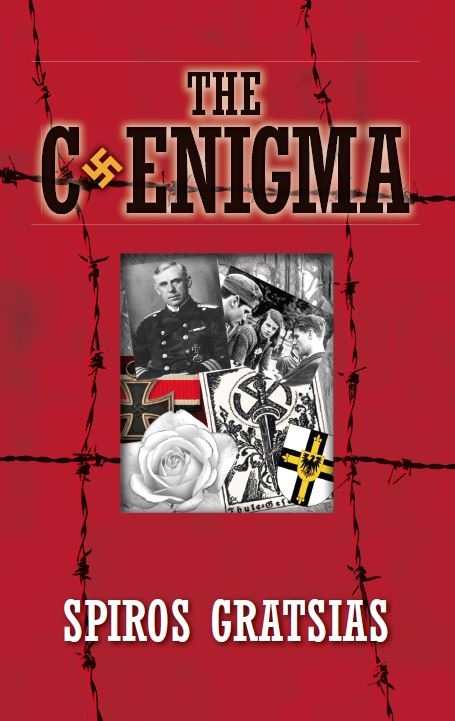The C ENIGMA
This fast-paced thriller in the vein of Dan Brown may prove a guilty pleasure for those intrigued by the Third Reich’s fascination with magic and relics.
The C ENIGMA, the fast-paced debut from Spiros Gratsias, draws from the annals of history and mythology to relate a modern mystery thriller in the tradition of Dan Brown. It’s a swift and enjoyable read.
While rooting around in his grandmother’s attic, Matthias Adkins stumbles across a box containing relics from WWII Germany, including a message in cipher. His curiosity piqued, he and his adoring girlfriend, Linda, go on an Internet search to solve this puzzle. A photo from the box leads them to a double agent in the Third Reich who planned an assassination of Hitler, and whose legacy clings to Matthias’s family.
Needing to know more, Matthias bounces from Boston to South America, following the decoded advice of his grandfather. Distant connections reveal Matthias’s own relationship to this noble spy and to the Templar organization that he was working with. Charged with protecting relics of the Church at the bequest of a dying connection, Matthias finds himself evading would-be assassins and personal demons, all in hope of fulfilling this destiny.
Though it jumps from era to era, delivering pieces of the story via players on both sides of religious and moral conflicts, The C ENIGMA is a quick and enjoyable read. Gratsias employs elements from the religious thriller genre with efficacy, elevating rumors to grand truths and facilitating a gripping showdown between forces of good and evil.
Still, a fast pace doesn’t always make up for the familiarity of the plot. Certain comparisons are inescapable, and the novel may suffer for them. Its twists recall The Da Vinci Code and Ken Follett, but they lack the freshness that might elevate the book above that connection.
Narrative moves rely on secondary sources, particularly in sections devoted to Matthias. Pace and character development are both inhibited by such tendencies. Indeed, Matthias comes to seem a rather helpless and temperamental protagonist: he takes lusty research breaks with Linda, and their interactions become saturated by gushy endearments, while sudden connections with old family friends leave him petulant and demanding. Paradoxically, as his star rises in a revitalized branch of the Templars, he becomes a less appealing actor in the tale.
The novel’s villains wear such moodiness better, and Gratsias effectively conveys them as an ominous and dangerous bunch. Cruelty and delusions of grandeur abound, and pages fly where they put plans into action.
The C Enigma may prove a guilty pleasure for those intrigued by the Third Reich’s fascination with magic and relics, or for those who share such interest themselves.
Reviewed by
Michelle Anne Schingler
Disclosure: This article is not an endorsement, but a review. The publisher of this book provided free copies of the book and paid a small fee to have their book reviewed by a professional reviewer. Foreword Reviews and Clarion Reviews make no guarantee that the publisher will receive a positive review. Foreword Magazine, Inc. is disclosing this in accordance with the Federal Trade Commission’s 16 CFR, Part 255.

